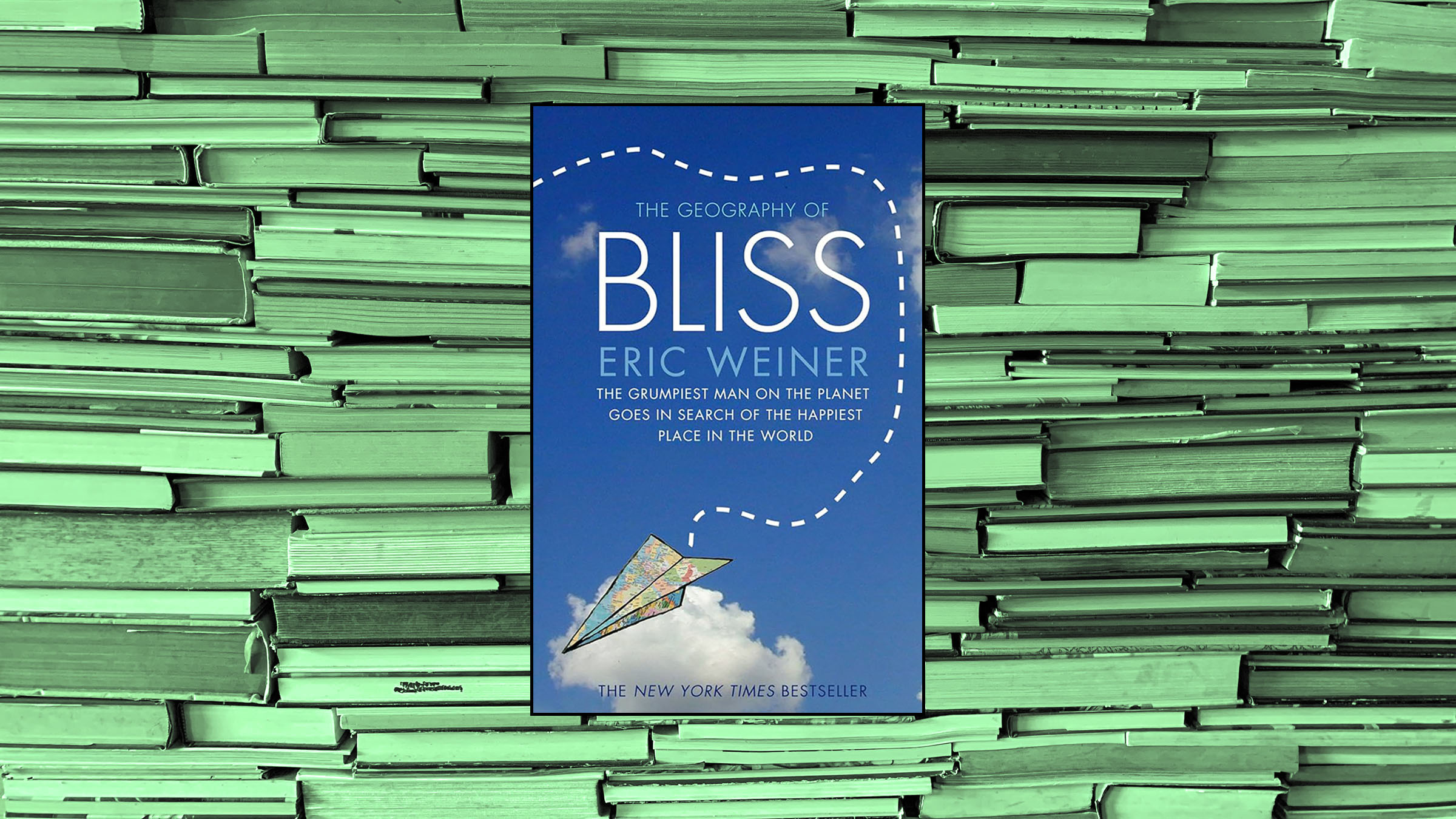Each month, American Express Essentials highlights one definitive literary work, old or new, and across any and all genres. The only determinant is quality: a book that makes life more vivid, more inspiring – a gifted piece of work you want to share. An absolute must-read.
Up this month is a thought-provoking, conversation-starting travelogue: Eric Weiner’s The Geography of Bliss.
In The Geography of Bliss: One Grump’s Search for the Happiest Places in the World, Eric Weiner, writer, journalist and former foreign correspondent for the National Public Radio, sweeps readers up in a journey infused with wit, insight and a healthy dose of sarcasm. Undertaking a year-long expedition, Weiner sets out to uncover the intricacies and reasonings behind the so-called “happiest places on Earth”. His mission takes him from the serene Alpine enclaves of Switzerland to the shining cities of Qatar and the mystical mountains of Bhutan – as well as every sort of place in-between – as he explores the essence of joy and general life contentment in each location.
As the reader follows his odyssey, they’re invited not just to tag along, but also to uncover the layers of cultural nuance, psychological insight and philosophical pondering that Weiner weaves throughout his witty observations. Armed with a dry sense of humour – expect to be laughing out loud – and a keen journalistic eye, Weiner navigates the ins and outs of happiness with both scepticism and curiosity, challenging conventional notions and universally acknowledged “truths” while ultimately offering readers a reflection on the extremely elusive nature of real human happiness.
In Weiner’s exploration, he confronts his subject with a healthy dose of scepticism, urging readers to reconsider conventional notions of what does or doesn’t make a person happy. As he traverses the landscapes of the different so-called “happy” nations, Weiner poses tough questions about the nature of happiness. Are the Swiss truly happy, or are they merely content with the stability and prosperity of their first-world nation? Does happiness equate to joy, and if so, can we deem the Swiss happy despite their seeming boredom and famous rigidity? Similarly, in Bhutan, is happiness a direct result of the nation’s deeply rooted spirituality, or is it a reflection of a well-balanced (and rather small) society?
Could money be at play? Weiner challenges the notion that wealth equates to happiness, questioning whether the fabulously rich Qataris have truly discovered the secret to fulfilment, especially when wealth often proves divisive and elicits jealousy.
Is it something else, then? If there’s one takeaway from this book, it is for the reader to reconsider their preconceptions about happiness, recognising that the subject is far more complex and multifaceted than commonly perceived.
Weiner’s exploration will leave readers with more questions than answers, and that’s perhaps a testament to the intricacies of the human psyche. While his journey does not reveal a simple magic key to happiness, it serves as a reminder that the truth is often subtle and complicated. The book challenges readers to seek understanding beyond surface-level assumptions and to embrace the inherent complexity of the pursuit of happiness.
Indeed, there are few absolute truths presented here, except perhaps for one: people are happier when in community. Happiness is only real when it’s shared, Weiner suggests – it doesn’t exist in a vacuum. As he writes “happiness is one hundred percent relational”.
What’s more, The Geography of Bliss not only serves as an exploration of happiness, but also doubles as an incredibly captivating travelogue. Weiner acts as a knowledgeable tour guide, leading readers on a fascinating journey across the globe. Despite his self-described “grumpy” persona (just ignore him on this, he’s not that bad), Weiner displays a genuine curiosity about people and their cultures, weaving personal anecdotes with insightful observations and research findings about societal differences.
Through his lens, readers are treated to a deeply personal exploration of each destination, one likely to satisfy the wanderlust of even the most adventurous souls. Weiner’s ability to delve into the cultural fabric of each location presented within the pages of his work adds richness to the narrative, making this not just a book about happiness, but also a delightful journey for curious armchair explorers.
That being said, the most fitting approach to this book is epitomised by a conversation Weiner has with Karma Ura during his visit to Bhutan: “I have achieved happiness,” says Ura, “because I don’t have unrealistic expectations”. Do not approach this book anticipating a philosophical treatise or life-altering literature. Keep your expectations modest and your sense of wonder keen, and you’ll find yourself pleasantly engaged.
Further Reading
If some soul-searching is in order, don’t skip Viktor Frankl’s Man’s Search for Meaning and Marcus Aurelius’ Meditations – both great starter books for those in search of insights into the human condition. And if you’re game for a true challenge, try your hand at reading Hannah Arendt’s aptly titled The Human Condition, a philosophical treatise on, well, just that.














Sorry, the comment form is closed at this time.